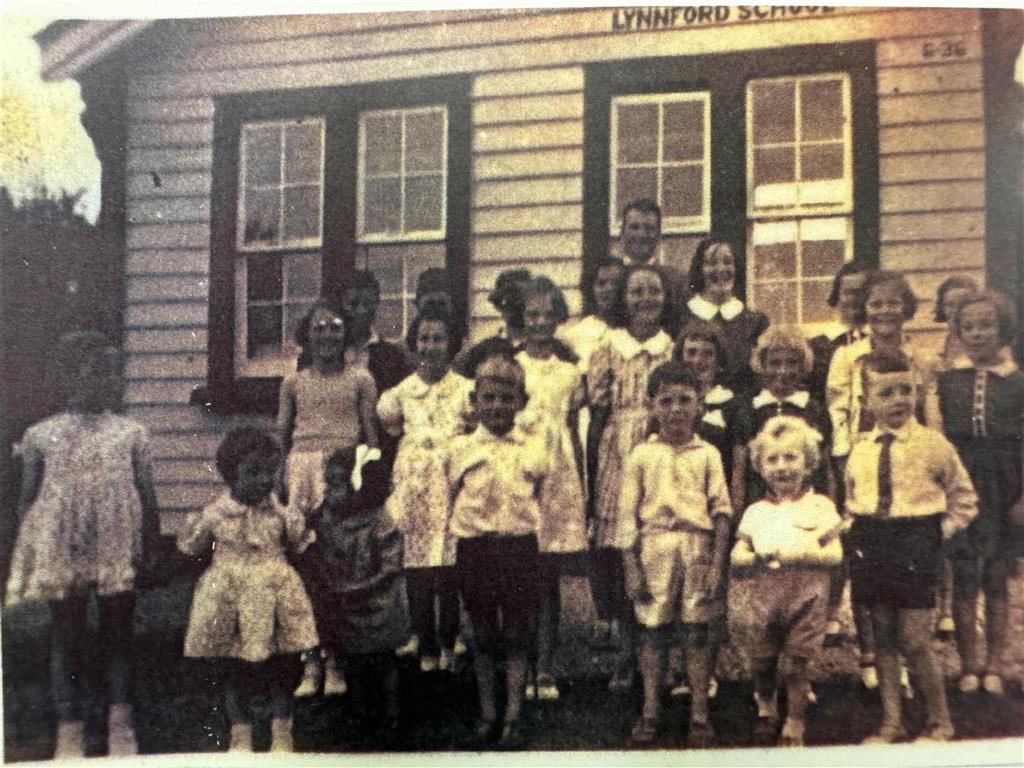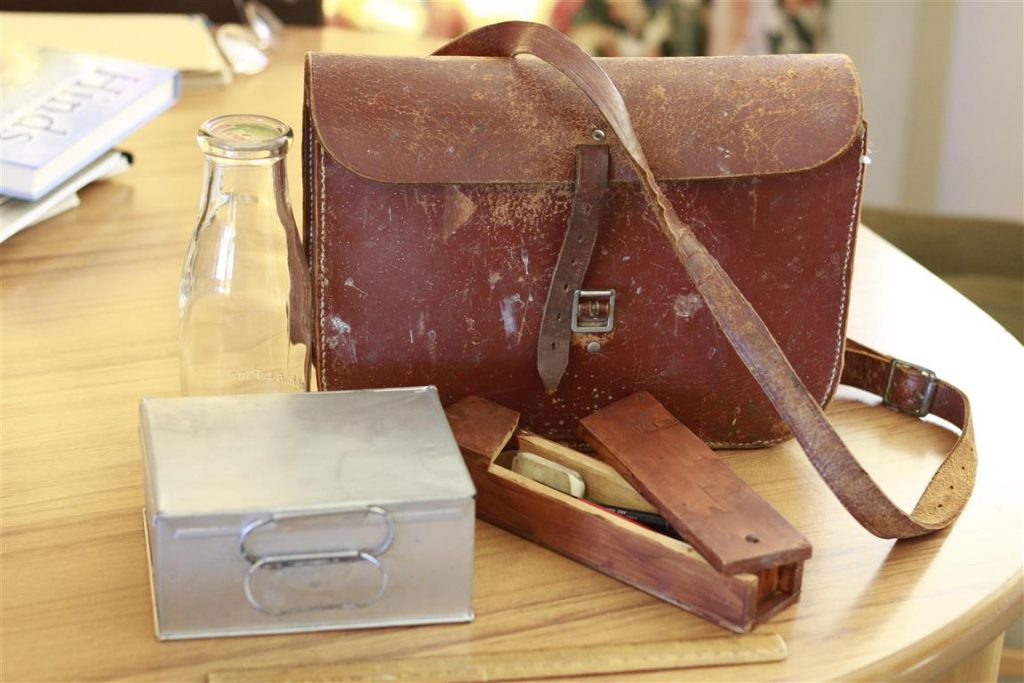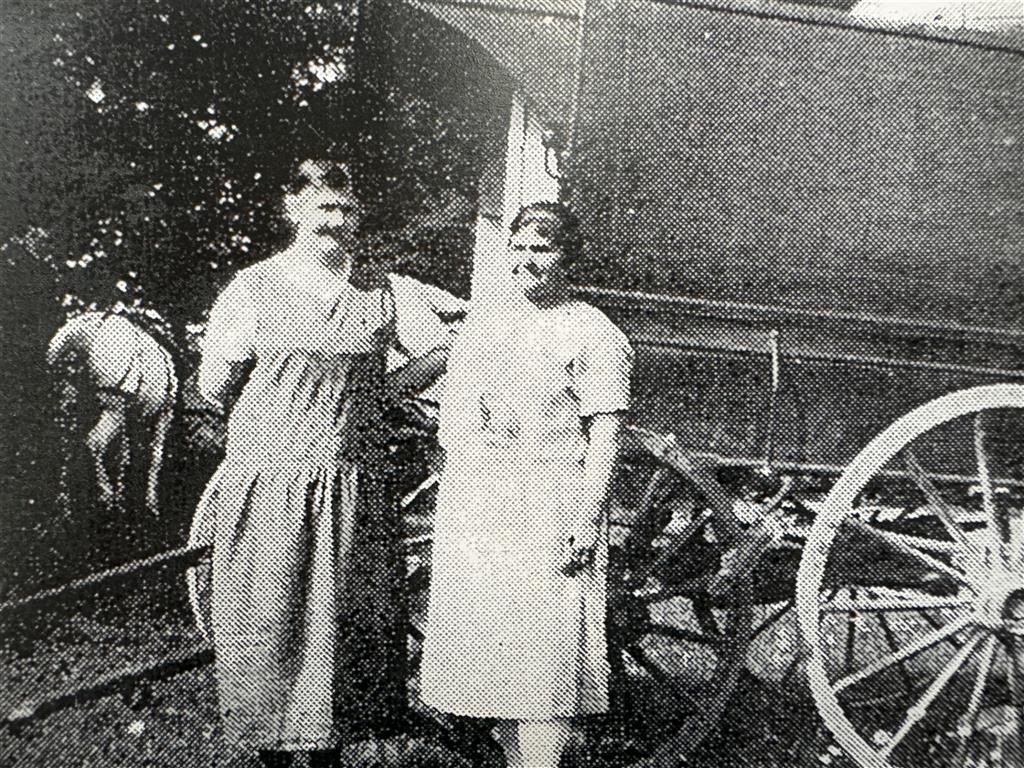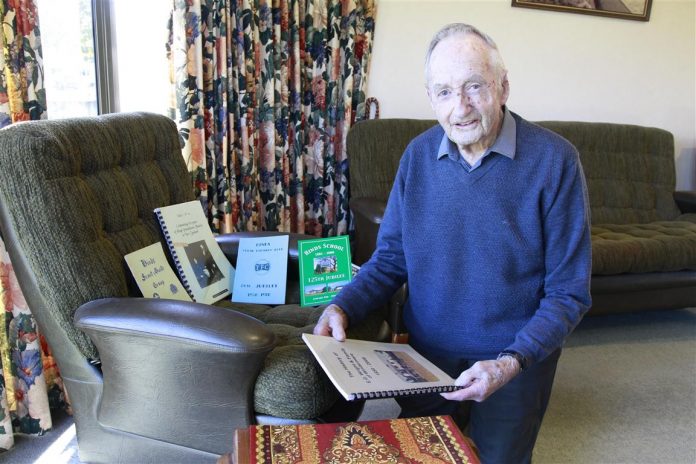Gilbert Donaldson of Ashburton is 89, and as such his memory goes back to a time most of us have never known.
The retired farmer shares his stories with others through the written and spoken word.
He has written nine history books relating to Mid Canterbury, and visits rest homes and schools to talk to residents and pupils.
The most recent is a memoir, Gilbert’s 87 Years of Life in Mid Canterbury.
The book has tales from his decades growing up and farming at Hinds, before he and his late wife Evelyn retired into Ashburton in 1992.
The other books cover the history of his family and groups from Hinds, such as Young Farmers, scouts and guides, and Hinds School.
They were published as the groups celebrated important milestones such as centennials and jubilees.

Gilbert said researching history and writing was a passion he inherited from his mother.
‘‘She encouraged us to read and write, we would always get books for Christmas and birthdays,’’ Gilbert said.
Among his first memories, as recounted in his memoir, is of attending Lynnford School as he grew up in Hinds.
In 1943 the council built a swing ridge over the Hinds River, making going across the bridge to get to school each day ‘‘an adventure’’.
‘‘It was great to see how far up and down it would go and then how far sideways you could make it travel and how many children could stay upright and could still hold on to their school bags.’’
Gilbert still has his school satchel from these days, complete with wooden pencil case, ruler and lunch tin and school journals.

It also has a milk bottle he kept from the days milk was delivered by train to the school each day.
He takes the satchel on his rest-home and school visits today.
‘‘The older people of my age in these homes, they enjoy the stories I tell them,’’ he said.
Among memories Gilbert has to share is one of a pair of travelling sales women who visited Mid Canterbury in the 1940s.
The following is that previously unpublished story.
Gilbert Donaldsons’s memories of Mary Farry and her niece Rosie in the 1940s:
During the war when petrol was short and many families could not get to town, a lot of country women would rely on travelling salespeople.
Mary and Rosie, who had a shop in Dunedin, would bring their white horse and wagon to the Mid Canterbury area each autumn.
They would travel by train to Ealing and then go to Geraldine, Mayfield, Lismore, Hinds, Greenstreet, Staveley, Springburn, Methven, Barrhill, Rakaia, Seafield, Pendarves and return to Rakaia and get the train back to Dunedin.
My grandparents George and Annie McMullan had a small farm at Lismore. Mary and Rosie would stay with them for two nights during their travels.
They would hitch the horse to a tree near the water race so she could get a drink.

After their travels during the day, they would come into my grandparents for dinner and stay and talk for the evening.
I had several holidays at my grandparents and I can remember being there twice when Mary and Rosie stopped at the farm.
We didn’t see many people from other countries during the war years in Mid Canterbury, so as a 10-year-old it was quite a novelty to meet these Lebanese ladies who were of a much darker complexion with their olive-coloured skin.
The items they sold included cards of domes, rolls of tape, cards of safety pins, ribbons, wool, dress material, sheets, blankets, cotton and many other household items.
On the mornings when leaving my grandparents’ place, it was quite a sight to see the horse’s bag of chaff hanging on the back of the covered wagon, along with a water bucket and pots and pans.
Mary and Rosie would travel down to Hinds and camp at Mr and Mrs Colin Chisnall’s farm, Eskdale, for two nights. From there they would travel around lower Hinds and across the Hinds River and around the Lynnford district selling their products.
When age caught up with Mary, she gave up travelling and her brother-in-law Mr Ferris carried on, but with a station wagon car.
It was the end of an era, as the travelling salespeople, along with the swaggers, have all disappeared from our roads today.




